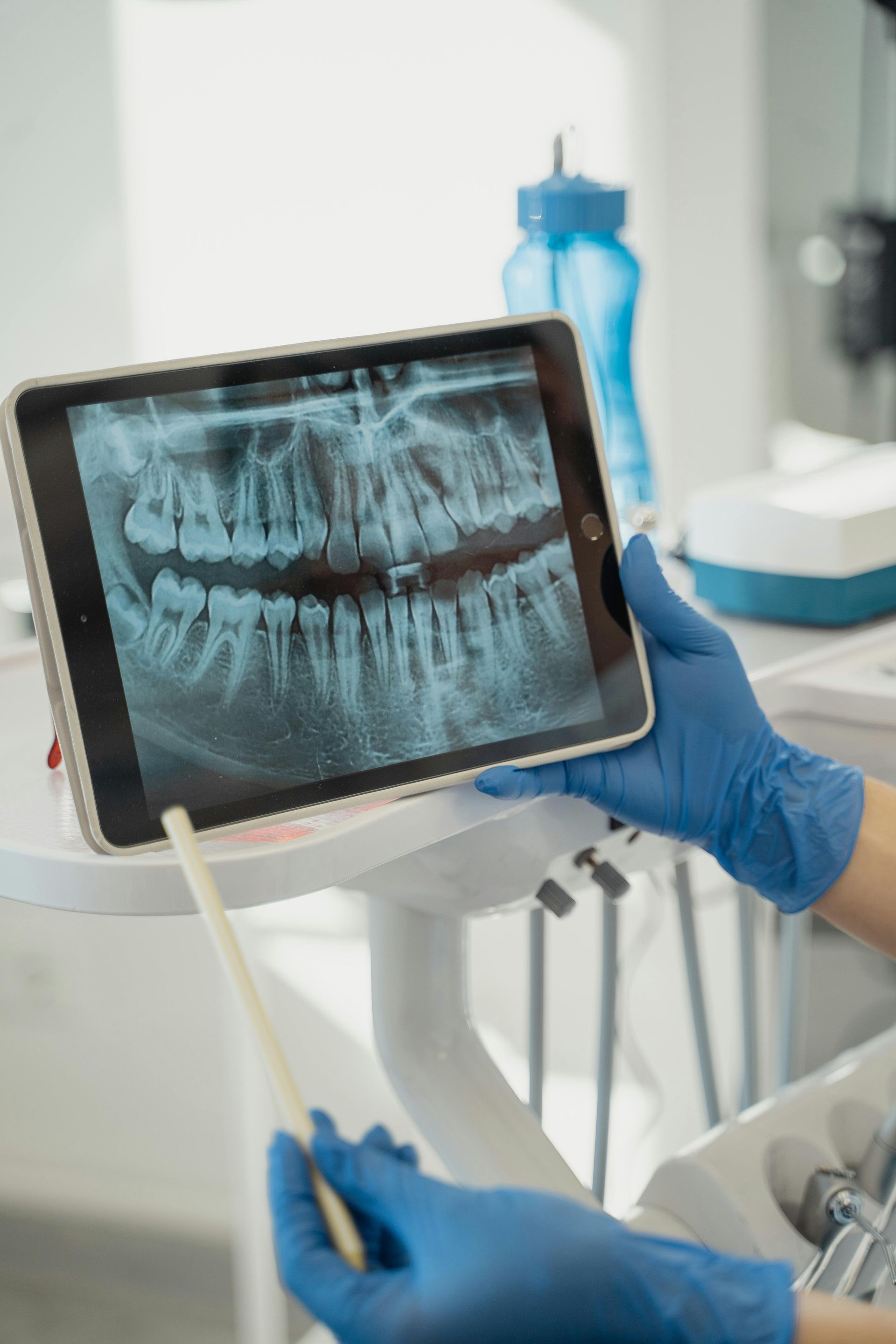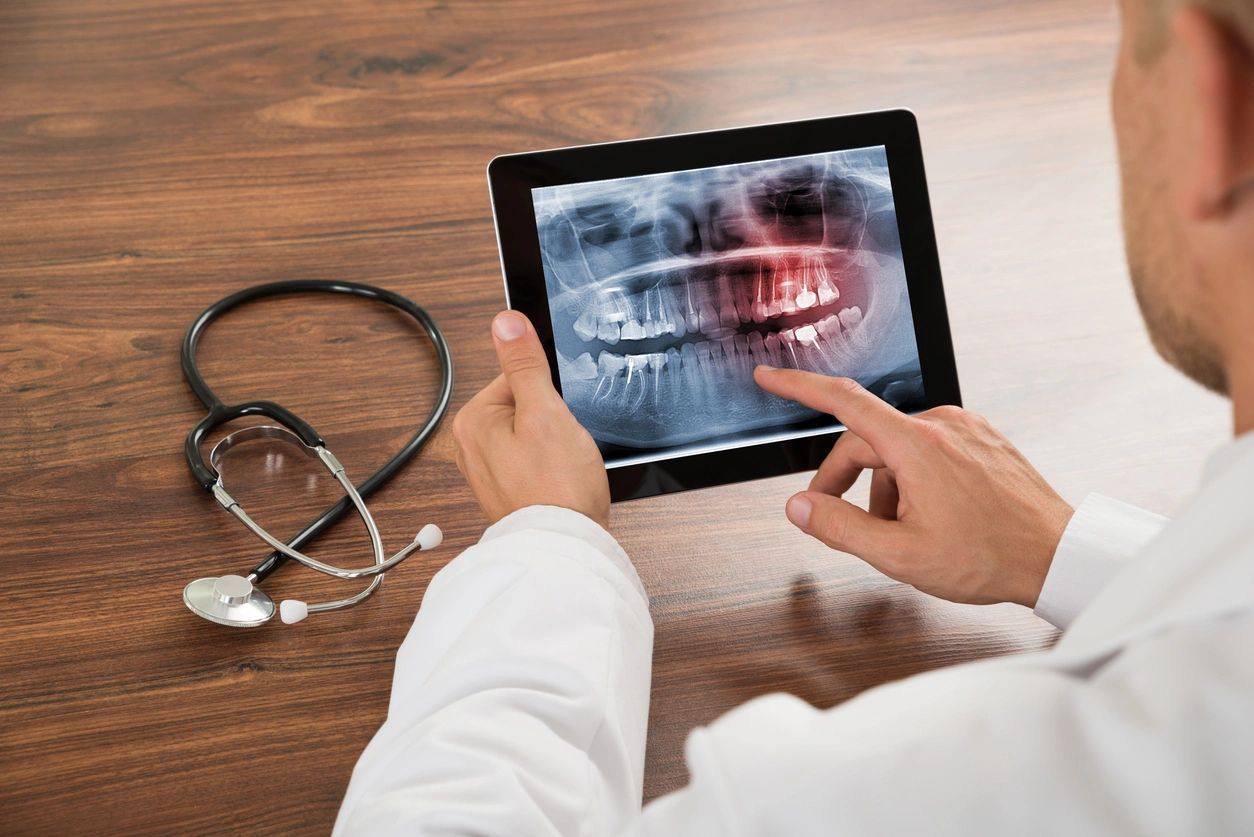Treatment for TMJ Disorder (TMD)
in Littleton, CO
What is TMJ Disorder (TMD)?
You have two temporomandibular joints (TMJs) — they’re located right underneath your ears where the lower jaw connects to the skull. If you’re experiencing tenderness in the TMJ area, difficulty chewing or clicking noises when you open your mouth, then you could be suffering from TMJ Disorder, also known as TMD.
TMD can occur for several reasons — such as damage or erosion of the joint or its supporting structures.
Dr. Maggie Aleksanyan at Designer Smiles of Colorado has effective treatments to alleviate your pain. Schedule a consultation today by calling our office or filling out the submission form. Let’s get the treatment process started as soon as possible.

Common TMD Symptoms
TMD can affect you in a number of different ways. Symptoms include:
Earaches and Headaches
Soreness in the TMJ region
Popping or clicking noises when opening your mouth
Pain or difficult chewing
Difficulty closing your mouth
Diagnosing Your TMD
During your consultation, Dr. Maggie will ask you about your symptoms and examine your head, neck, shoulders, and jaw. She’ll listen as you open and close your mouth and watch as you move it. She might press down lightly on different areas of your jaw, looking for the source of your pain or discomfort.
Next, Dr. Maggie will use our advanced diagnostic equipment to get a better understanding of what’s happening with your TMJ and its supporting structures. That way, she’ll be able to develop an effective treatment plan for you.
TMD Treatment
There are a number of therapies that Dr. Maggie uses to treat TMD, including physical therapy, stress reduction techniques, and more. The ideal treatment option depends on the severity of your symptoms and why the problem occurred in the first place.
For example, some TMJ issues are related to severe tooth wear and an alteration in occlusion, which refers to the area of contact between teeth. These issues can arise because the patient grinds their teeth, which damages the structure of the tooth. In these situations, Dr. Maggie may recommend either a partial or full mouth reconstruction.
If the damage is mild to moderate, Dr. Maggie can restore your bite using dental crowns or onlays. Both of these options use pieces of tooth-colored porcelain to correct the shape, size, and strength of your teeth.
Most of the time, TMJ symptoms can be reduced by using appliance therapy, which involves a custom-fitted bite guard that you wear in your mouth while you sleep. Since a large portion of TMJ issues derive from added pressure on the jaw joints, appliance therapy works to relieve that pressure by realigning your bite.

As a last resort, she’ll prescribe the following types of medication for TMD:
Muscle relaxers
These reduce your pain by preventing the muscles in your jaw from experiencing spasms.
Tricyclic antidepressants
Even though these are commonly used for patients with depression, a low dosage can help you relieve pain, manage teeth grinding, and prevent fatigue.
Pain relievers and
anti-inflammatories
Some of our patients find over-the-counter pain relief medication helpful in treating their TMD. If you’re still experiencing pain, however, Dr. Maggie can provide additional types of medication to help with the swelling and discomfort.
Treating Your TMD at Designer Smile of Colorado
If you notice signs of TMD such as popping noises when you chew or any type of pain in the TMD region, it’s time to get help.
The fastest way to solve your issue is by scheduling a consultation with Dr. Maggie. She’ll make sure you get the relief you’re looking for.
Frequently Asked Questions about TMD
Are there any natural ways to treat TMD?
There are a few natural remedies that can improve your TMD symptoms. Dr. Maggie may recommend some of the following:
- Apply heat or ice to the muscles surrounding the TMJ
- Avoid hard, chewy, and crunchy foods
- Take over-the-counter pain relievers
- Practice jaw exercises
- Try relaxation techniques such as yoga
- Positional therapy
While natural remedies may help with symptoms, they’re best used in combination with a trusted method such as a nightguard. If you have TMD, schedule a consultation with Dr. Maggie by calling (303) 703-4544. She’ll create a customized treatment plan to address your needs.
Is there a way to get rid of TMD permanently?
In the event that dental treatments aren’t effective, surgery is an option. However, surgery for TMD is invasive and only used in the most severe cases. Open joint surgery may cause permanent damage and restrict motion in the joint. Luckily, there are several solutions to consider before surgery becomes necessary.
A nightguard works by evenly distributing the pressure caused by teeth grinding, also known as bruxism. This helps to alleviate the pain associated with TMD and treat the side effects that accompany the disorder.
Is TMD serious?
In addition to the emotional damage caused by chronic pain, TMD can alter the jaw joint and change your bite if left untreated, resulting in permanent damage. It can limit the range of motion in your jaw and even cause lockjaw. TMD can also cause your teeth to wear down and your gums to recede, eventually leading to bone or tooth loss.
What causes lockjaw?
If left untreated, TMD can cause lockjaw or limit your jaw from fully opening. When the ligament between the jawbones dislocates, it can prevent the jaw from closing and opening all the way. Another reason your jaw may become locked is if the muscles surrounding the jaw spasm to a point that the full range of motion can’t be achieved.
If you have TMD, it’s vital to seek treatment before the disorder causes permanent damage. Schedule a consultation with Dr. Maggie by calling (303) 703-4544. During this visit, she’ll determine the cause of your TMD and provide you with a customized treatment plan to alleviate your pain and prevent further complications.
Ready to get relief?
Call us at (303) 703-4544 or complete our form to schedule your FREE consultation today!
